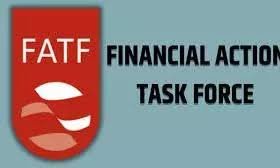New Delhi – The Financial Action Task Force (FATF) has released its latest publication, “Asset Recovery Guidance and Best Practices,” a comprehensive and updated framework aimed at strengthening the global system for asset recovery against financial crimes.
The document represents one of the most significant reforms to FATF standards on confiscation and international cooperation in more than three decades. It provides practical measures for policymakers and enforcement agencies to identify, trace, freeze, manage, confiscate, and return assets derived from criminal activity.
FATF has called upon jurisdictions worldwide to make asset recovery a national policy and operational priority, using the new guidance to safeguard the integrity of the global financial system and improve outcomes for victims and affected communities. The publication serves as a benchmark for nations to align their domestic frameworks with emerging global best practices.
India’s Prominent Role and ED’s Global Recognition
India has played a leading and proactive role in developing both the revised FATF standards and the newly released guidance document. Officers from the Directorate of Enforcement (ED) were integral members of FATF’s project teams, contributing extensively to the drafting process, working group deliberations, and plenary negotiations held over the past two years.
The final document features multiple case studies from India, showcasing ED’s successful asset recovery actions as international models of effective inter-agency coordination and enforcement. This recognition underscores India’s growing global influence in shaping policy and practice on asset recovery and financial crime enforcement.
Expanded Framework and Key Provisions
The FATF’s new guidance broadens the concept of asset recovery to cover the entire process—from identification of criminal property to its confiscation and return.
For the first time, FATF has formally endorsed non-conviction-based confiscation, allowing authorities to recover criminal assets even in the absence of a conviction when prosecution is not feasible.
The framework also recommends:
- Adoption of extended confiscation and unexplained wealth orders, enabling authorities to require individuals to justify the lawful origin of their assets.
- Early application of provisional measures, such as ex parte freezing powers and interim management, to preserve asset value.
- Strengthened cross-border cooperation, both through formal mutual legal assistance and informal mechanisms like Asset Recovery Inter-Agency Networks (ARINs).
- A focus on transparency, accountability, and victim-centred restitution to ensure that recovered assets serve legitimate public or victim-related purposes.
India’s Legal Framework and Case Examples Highlighted
The guidance draws significantly from India’s legal and operational framework under the Prevention of Money Laundering Act (PMLA), 2002, and the Fugitive Economic Offenders Act (FEOA), 2018, the latter being cited as a strong example of the doctrine of “fugitive disentitlement.”
One of the Indian case examples featured involves coordinated action between the ED and a State Crime Investigation Department, leading to the attachment and restitution of assets worth ₹60 billion (USD 690 million) to victims of a large-scale investment fraud. FATF highlighted this case as a model for effective domestic cooperation and victim restitution.
Another cited case involves the attachment of immovable properties valued at ₹17.77 billion (USD 204 million), equivalent to the proceeds of crime transferred abroad, demonstrating India’s robust implementation of value-based confiscation and its strong legislative framework.
Championing the Voice of Developing Economies
India’s consistent engagement in FATF deliberations ensured that the new guidance reflects the real-world challenges faced by developing and emerging economies, especially in cross-border asset recovery involving complex financial structures.
Through its advocacy, India helped introduce more flexible, responsive, and informal mechanisms for international cooperation and early-stage financial investigation — reinforcing the importance of mutual assistance and operational pragmatism within the FATF framework.
A Milestone in Global Financial Enforcement
The publication of “Asset Recovery Guidance and Best Practices” marks a major milestone in the global law enforcement community’s efforts to deprive criminals of illicit gains and ensure that financial crime does not pay.
India’s active contribution — led by the Directorate of Enforcement — has added operational credibility and practical depth to the FATF’s global standards. The inclusion of Indian examples underscores the country’s growing leadership in shaping international norms on financial integrity and accountability.
The new guidance is expected to serve as a critical resource for countries seeking to strengthen their asset recovery systems, and India’s continued leadership will play a pivotal role in advancing international cooperation and best practices in this vital domain.


